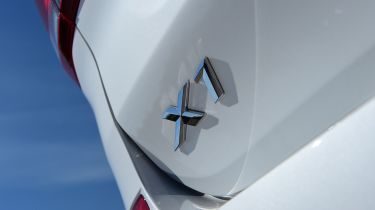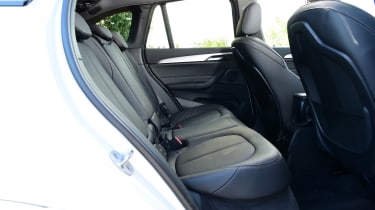BMW X1 SUV(2015-2022) - Practicality & boot space
The BMW X1 is spacious in the rear and has a very competitive boot size
Considering it’s an SUV, the X1 needs to be spacious in order to justify its size. It does practicality rather well, as it offers a competitive boot capacity and a very good amount of leg and headroom for rear-seat passengers.
BMW X1 interior space & storage
BMW claims that all four door bins in the X1 are capable of holding a one-litre drinks bottle and the cup-holders in the centre console are very useful, too. There’s a good-sized glovebox and generous storage space under the central armrest. Plus, the front seats have lots of scope for adjustment and the optional sliding rear seat can free up even more room.
Speaking of rear space, the X1 provides a decent amount of both head and legroom for three rear passengers. There’s 37mm more legroom as standard compared to the old X1, and that can be expanded to 67mm if the sliding rear seat mentioned above is specified.
Boot space
There’s 85 litres more boot space in this car than there was in the old X1, which pushes the total usable room up to 505 litres when the rear seats are in place. That’s the same as you get in a Mazda CX-5 and 25 litres fewer than the boot of an Audi Q3. Fold the 40:20:40 split rear seats flat and the available room expands to a massive 1,550 litres.
Choose the PHEV version and there's a small but notable practicality hit, with the boot shrinking in volume by 55 litres. BMW has also cut the size of the petrol tank to 36 litres to create more space for the hybrid powertrain.
Towing
The sDrive and xDrive18d models can pull up to 1,800kg; all other X1s have a towing capacity of 2,000kg.
Which Is Best?
Cheapest
- NamesDrive 20i MHT Sport 5dr Step Auto
- Gearbox typeSemi-auto
- RRP£36,200
Most Economical
- NamexDrive 25e Sport 5dr Step Auto
- Gearbox typeSemi-auto
- RRP£42,670
Fastest
- NameM35i xDrive 5dr Step Auto
- Gearbox typeSemi-auto
- RRP£50,935













